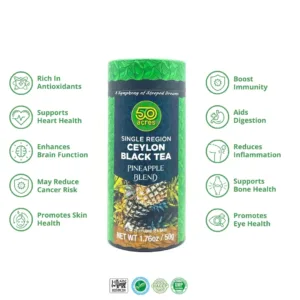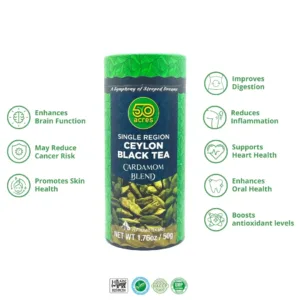Discover What 50 Acres Tea Does to Your Body with Every SipFDA designated Tea the Healthy Drink
Discover What 50 Acres Tea Does to Your Body with Every Sip FDA designated Tea the Healthy Drink Tea Helps with Focus and Stress Relief: Drinking tea is effective because of caffeine and L-theanine, which improve alertness without the jitters associated with coffee. Not all








